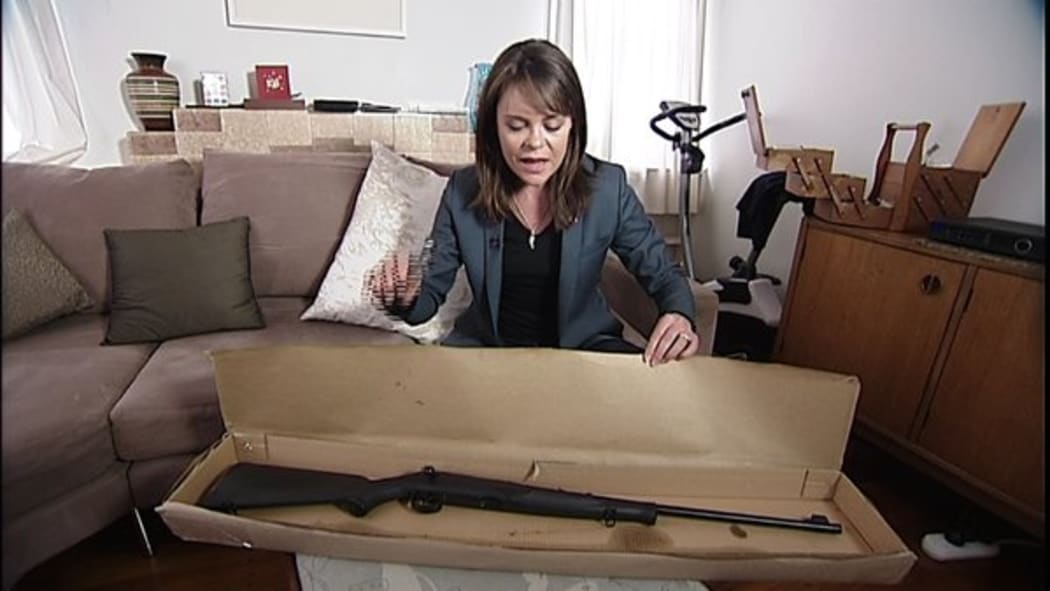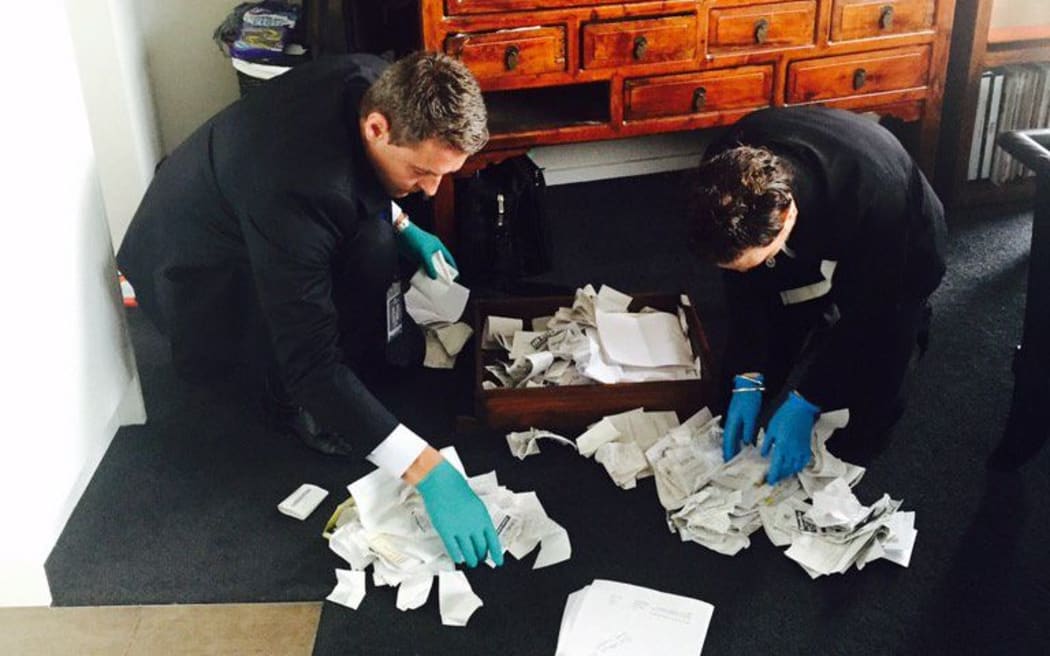Police ruffled feathers in the media this week by rifling through the home of a journalist who bought a gun to prove a point - and break a story. They say she broke the law and will be treated like anyone else. But is it also a signal to other journalists?

Heather du Plessis-Allan tweeted this photo of herself with the gun. Photo: Supplied
Police were criticised last week after the country's leading researcher on gangs revealed that he been denied access to information under the terms of a contract obliging academics to share their findings – effectively giving police powers of veto.
The police commissioner later told TV3's programme The Nation the policy will be changed and he wanted to "build great relationships" with academia. But he now has a bridge to build with the media after his officers searched a journalist's house this week.
Police officers entered Heather du Plessis-Allan's home looking for handwriting samples as part of an investigation into the unlawful purchase of a gun. The TV3 presenter bought a .22 rifle by mail order in October to show how easily this could be done without a licence.
Proving a point
It wasn't the first time a reporter had done this to make a point about loose laws. In 2008, Sunday Star Times reporter Tony Wall bought a similar gun online after a shop owner was shot dead with a weapon bought the same way.
I had visions of having to enter the criminal underworld, meeting some dodgy gang member in a dark alley. But all I really needed was a computer
- Tony Wall
But while that was a private sale, TV3’s Heather du Plessis-Allan bought her gun from a commercial gun retailer, using made-up details including the name and identity number of a police officer.
Sneaky? Certainly. In the public interest? You'd think so. Heather du Plessis-Allan and her programme were praised for finding what looked like a loophole that should be closed. But the New Zealand Herald's senior reporter David Fisher disagreed:
Almost always, a loophole is what is exposed when you do something the law does not cover but should. In my opinion, a loophole is not what you have when you break the law just to show how easy it is to break.
- David Fisher
Police were clearly of the view anyone who breaks the law should face the music, regardless of the circumstances or the individuals involved.
"There are serious penalties around forgery, with a maximum prison sentence of 10 years," a statement said last Wednesday. The police inquiry certainly took this seriously. The New Zealand Herald reported two other search warrants were also executed, including one at TV3's Auckland offices.

Photo: Twitter / @barrysoper
Sending a signal?
Heather du Plessis-Allan isn't the only reporter to have the police round at home in recent times. Nicky Hager's property was picked over a year ago by officers investigating the hacked data at the heart of the Dirty Politics book -- even though he was only classed as a witness. He awaits the outcome of a judicial review of the legality of that search.
On RNZ National's Morning Report, former TVNZ head of news Bill Ralston said these aren't isolated incidents
I think the intent is to send a message to journalists that if they go near the edges of the law or insult the New Zealand Police, they'll get a heavy response. There is a trend now where police are seen to be targetting journalists and searching their homes for evidence.
- Bill Ralston
Though the former news boss turned PR man seemed less inflamed about that just after the raid on Nicky Hager's home last year, judging by this tweet at that time:
Just to annoy rabid tweeters: Shouldn't someone who accepts stolen goods be raided & why did he wait till today to announce it?
— Bill Ralston (@BillyRalston) October 6, 2014
Tricky decisions
Mediawatch asked police commissioner Mike Bush for an interview about these concerns.
"We’re not in a position to do this when we have live investigations such as the (TV3) matter ongoing," New Zealand Police replied.
Do editors in the media think police are showing that they're prepared to get tough with journalists?
"It wouldn't put me off, but you have to be careful", TVNZ's current head of news John Gillespie told Mediawatch.
He told Mediawatch the purchase of the gun revealed a matter of genuine public concern, but because it was a criminal matter he wasn't surprised by the search.
"It did look dramatic, but I guess the police are doing their job in one sense," he said.
"There's a lot of good stories out there where we could break the law to do them," he said.
"But you have to weigh that against the ramifications for the individual reporter and the reputation of the news service and the company itself."

